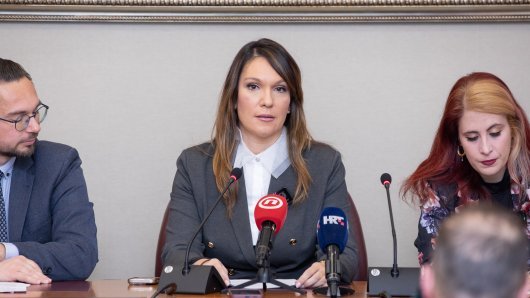Leaders of the opposition coalition led by the Social Democratic Party (SDP) presented portions of their election platform, called Plan 21, in the northern coastal city of Rijeka on Saturday, focusing on workers' rights and pensions.
SDP president Zoran Milanovic said that a new government would face great challenges. "There are no more alibis. We ourselves will be responsible for our successes, but also for our failures," he said.
His deputy, Milanka Opacic, said that the main objective of the coalition was to protect workers' rights, adding that although laws in Croatia were well written, they were not implemented as they should be.
The first task of the new government will be to strengthen the economy by disburdening it of taxes and contributions and by supporting job creation through subsidies. Programmes for the employment of highly educated young people will be drawn up and possibilities for the hiring of younger pensioners will be explored, Opacic said.
The state inspectorate will need to step up its work on preventing undeclared work, strengthening the security of people working on fixed-time contracts, and putting a stop to unpaid work, she added.
Croatian Pensioners' Party (HSU) president Silvano Hrelja said that the priority was to adjust pensions to the rise in living costs. He, however, added that no significant increases in pensions were to be expected because the economy was not expected to grow significantly.
Hrelja said that the coalition's aim was to improve the entire pension system by developing it against economic growth and the employment rate. That will be achieved by determining a minimum base of contributions according to pensioners' qualifications, by abolishing a health contribution of 3% for 22,000 pensioners, and by abolishing, in the first year in office, privileged pensions for members of Parliament, government officials and Constitutional Court judges, he added.
Answering questions from members of the public, Milanovic said that the SDP-led coalition would redress injustices done by criminal activities during the privatisation and ownership transformation process, thanks to the constitutional provision saying that such types of crime do not fall under the statute of limitations.
Milanovic said it was necessary to decentralise the country, but not fragment it. The reform of local government is the first next reform that should be carried out and it should be done by securing more funds for local government units, he said, adding that regions should be statistical and development-oriented in order to draw money from EU funds. He also mentioned the need to reduce the number of municipalities.




































